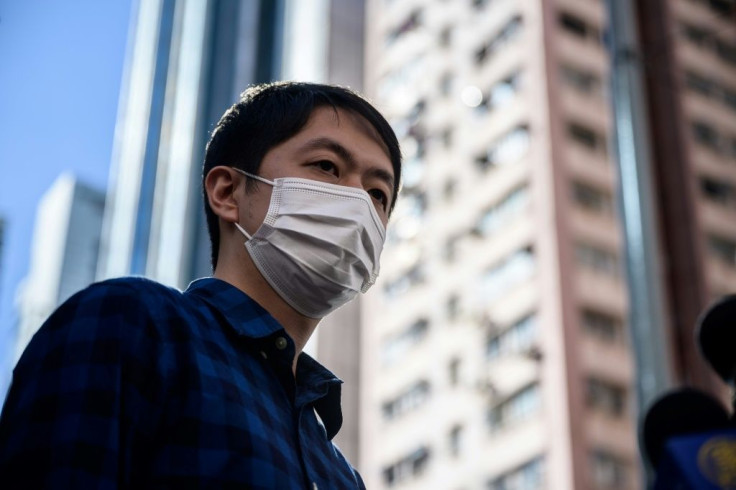Police Say Runaway Hong Kong Politician Probed For Security Crime
A Hong Kong pro-democracy politician who fled overseas is being investigated for national security crimes, police said Sunday, confirming they have frozen some of his bank accounts.
The revelation comes as international banks in the semi-autonomous city become increasingly tangled up in political tensions as the US threatens to sanction businesses that aid Beijing's crackdown on dissent.
Ted Hui, a veteran opposition activist and former lawmaker facing a string of prosecutions linked to his pro-democracy protests, left Hong Kong last week.
He confirmed he would go into exile while attending a conference in Denmark, joining a growing list of critics who have fled the financial hub since Beijing imposed a sweeping new security law over the summer.
Hui, who travelled on to Britain on Friday, said his bank accounts and those of some family members had been frozen, accusing authorities of "using economic oppression as means of political retaliation".
On Sunday evening police issued a response to media enquiries, confirming Hui is now being investigated for "colluding with foreign forces", one of the new national security crimes.
He is also suspected of money laundering linked to a crowdfunding campaign that allegedly went to accounts owned by his relatives.
So far around HK$850,000 (US$109,000) is in the frozen accounts, the statement said.
Shortly afterwards Hui released an updated statement saying HSBC accounts owned by his relatives have been suddenly unfrozen.

Hui has denied that family members received money from the crowdfunding, which was raised for him to launch private prosecutions, including one against the police, that were halted by the Justice Department.
"The money has been kept in the bank accounts of the law firm and the accounting reports have all been made public," Hui said.
HSBC declined to comment on individual accounts.
Hong Kong prides itself as a dependable free market economy and a business bridge between China and international markets.
But large and often violent pro-democracy protests last year -- and Beijing's subsequent clampdown -- has ramped up political risk for banks.
China has made it clear it expects international businesses to back its security law, which grants authorities expanded investigatory and seizure powers.
The US has declared Hong Kong no longer sufficiently autonomous from the mainland and sanctioned key officials, including the city's leader Carrie Lam.
In an interview last month, the Hong Kong chief executive said she has now been forced to rely on "piles of cash" at home after US sanctions meant that her bank accounts were cut off.
The US has ordered banks to stop doing business with top officials in the city and warned further sanctions could come against any businesses deemed to be complicit in the crackdown.
At the same time, China's new law makes it a potential security crime to adhere to foreign sanctions, leaving international banks in a quandary that has yet to be resolved.
© Copyright AFP 2024. All rights reserved.





















